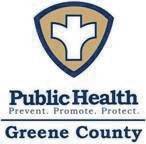
XENIA — Greene County Public Health (GCPH) and other local agencies in Greene County are coming together next week to remember those who have died or experienced permanent injury due to drug overdose.
Observed on Aug. 31 every year, International Overdose Awareness Day (IOAD) seeks to create better understanding of overdose, reduce the stigma of drug-related deaths, and create change that reduces the harms associated with drug use.
According to GCPH officials, in 2019, there were 874 IOAD events of all kinds, held in 39 countries. People and communities came together to raise awareness of one of the world’s most urgent public health crises. According to the UN Office on Drugs and Crime’s most recent World Annual Drug Report, 585,000 people around the world died as a result of drug use in 2017.
Melody Kingsley, a health educator with Greene County Public Health, manages the Project DAWN (Deaths Avoided With Naloxone) and Safe Trade Syringe Exchange programs and services.
“By increasing awareness and sharing resources with our community, we stand together to say that more needs to be done to end overdose in Greene County and the region,” she said. “Overdose can affect anybody and one of the messages of this day is that the people who overdose are our sons, daughters, mothers, fathers, brothers and sisters – they are loved and they are missed. We encourage members of the community with lived experience to speak out and stand in solidarity with the men and women who have been personally affected by overdose.”
In “Our region faces more than one epidemic,” an editorial published in this paper Aug. 12, Dr. Greta Mayer, CEO of Mental Health Recovery Board of Clark, Greene and Madison Counties focused on the drug epidemic and the disease of addiction.
Dr. Mayer said, “In these stressful and uncertain times, it’s easy to lose sight of the opioid epidemic and focus solely on COVID-19. People with opioid use disorder (OUD) deserve better. As community leaders, healthcare providers, and family members, we owe it to individuals living with OUD to continue addressing the opioid epidemic with strategies that have been proven to work — offering treatment, providing easy access to recovery services, and distributing naloxone (a medication for reversing opioid overdoses) to residents.”
Mayer urges Greene County residents to be aware of local resources. Those who are feeling distressed for an extended period of time should reach out for help. The following resources are available 24 hours a day, seven days a week:
• TCN Behavioral Health Crisis Line: 937-376-8701
• Ohio Crisis Text Line: Text “4HOPE” to 741-741
• Disaster Distress Helpline: 1-800-985-5990, or text “TalkWithUs” to 66746 for English or “Hablanos” to 66746 for Spanish, Deaf/Hard of Hearing TTY 1-800-846-8517
• National Suicide Prevention Lifeline: 1-800-273-8255
• Family Violence Prevention Center Hotline: 937-426-2334 or 937-372-4552, or reach the texting hotline at 937-347-5917
• Clark, Greene, Madison Warmline: 937-662-9080
The following websites may also be helpful:
• Mental Health Recovery Board of Clark, Greene & Madison Counties: www.mhrb.org
• The Hope Spot: thehopespot.org
• The Emerald Jenny Foundation, a directory of addiction services: www.emeraldjennyfoundation.org
• FindTreatment.gov, a national database for addiction services: findtreatment.gov
GCPH’s Safe Trade Syringe Exchange Program
This one-for-one syringe exchange program offers HIV and Hepatitis C testing, referrals to substance abuse treatment, education on safe injecting practices to reduce the spread of disease and training on how to use naloxone to reverse an opioid overdose.
Safe Trade operates at the following times:
• 1-4 p.m. Wednesdays at GCPH Xenia office, 360 Wilson Dr., Xenia
• 1-4 p.m. Fridays at GCPH Fairborn office, 600 Pierce Dr., Fairborn
For more information, contact [email protected] or visit www.gcph.info
GCPH’s Project DAWN Program
Ohio’s Network of Opioid overdose education and naloxone distribution programs is called Project DAWN (Deaths Avoided With Naloxone). Program participants receive a take-home naloxone kit and training on:
• Recognizing the signs and symptoms of overdose
• Distinguishing between different types of overdose
• Performing rescue breathing
• Calling emergency medical services
• Administering intranasal naloxone
Residents can order a free naloxone kit online at www.research.net/r/GCPH_PDForm.
For more information, contact Melody Kingsley, [email protected] or visit www.gcph.info


